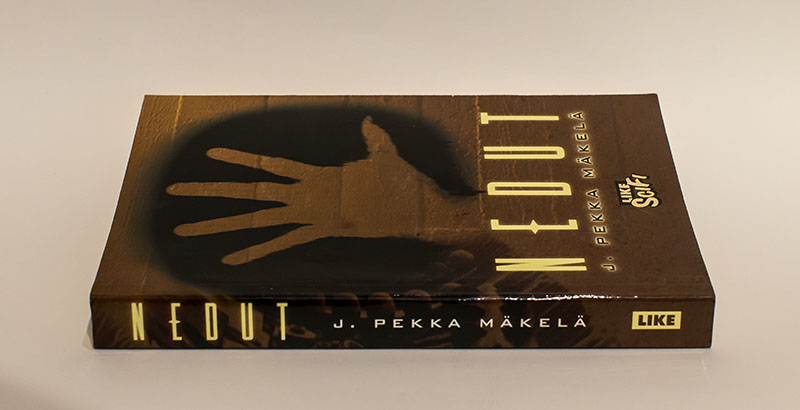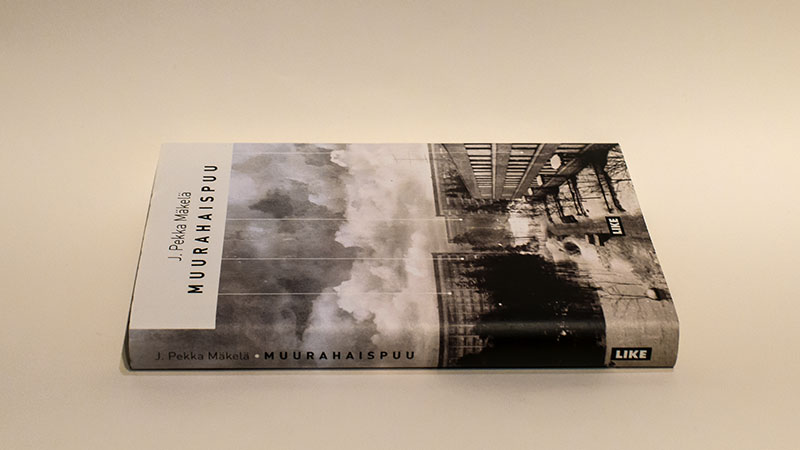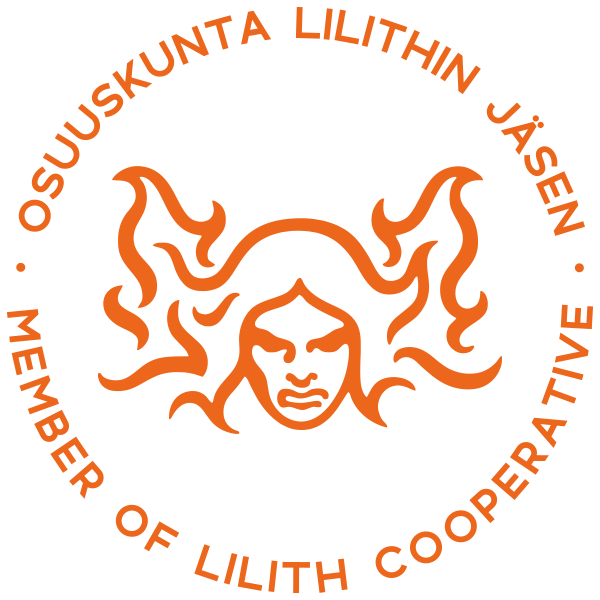J. Pekka Mäkelä as an Author
A son of two well read journalists, I grew up in a household full of books and lots of appreciation for reading. Everybody, myself included, always thought I would write novels when I grow up. In reality it took a few decades in various professions (and for a while, without any) and several false starts before I could came up with a good enough story to be published. After the 391 came out in 2004 I have tried to make up the lost time by writing seven novels and a few short stories in a decade and a half.
(As a music maker, I was a slow starter, too. The beginnning of my songwriting happened in the early Eighties. I started making theatrical music and ambient soundscapes in my thirties.)
But this is just a start. I plan to peak at 72.
A Short Story in English
”Thirty More Years” translated into English by Owen Witesman.
Originally written in Finnish for Tähtivaeltaja magazine, this story is set in the same universe as my novel Karsta. (See below.)
Pahasilmä
by J. Pekka Mäkelä
published in 2021 by Like
360 pages

What would you do if you had supernatural powers to punish bad people? What if you weren’t able to fully control those powers and end up hurting people dear to you, without any means to reverse what you had done? In this story, a young and talented microbiologist ends up returning to her home town with nothing to look forward than caring about her paralyzed father – who, she thinks, was paralyzed by her powers. But the story doesn’t end there, neithed does it start there.
The story starts in 1996 in Helsinki, where the University teachers and students converse through PortaCom, an early form of social media. Through PortaCom, a returning Philosophy student meets an young lady who’s writing her thesis, playing guitar in bands – and, whenever she’s around, it just might be that something truly weird might happen to people who behave badly towards nice people...
Hunan
 by J. Pekka Mäkelä
by J. Pekka Mäkelä
published in 2018 by Like
552 pages
Shortlisted for Finlandia literary award for the best novel of 2018
In 1935, a thirty year old math teacher Helvi Söderman from Finland arrived to Shanghai and continued upriver to the Hunan province, where the Chinese civil war never had really ended, to work as a missionary. It was supposed to be just a few years until she would have her leave and return to home for an year. But in 1937 Japan invaded China and all the roads out were cut. She couldn’t leave until 1946, long after Japan had surrendered and the civil war started again.
Helvi Söderman (1902–1986) – my grand-aunt – kept a journal all through her missionary years. Long after her death, the diaries came into my possession and I started to construct a novel around her true story. Hunan blends true history with magical realism into stories of lives between faiths, political intrigue and warring armies.
Hunan is my first novel set in a historical setting (with the exception of 391) and one that took four years to write.
The Alshain pentalogy:
Alshain
by J. Pekka Mäkelä
published in 2006 by Like
391 pages
Alas
by J. Pekka Mäkelä
published in 2013 by >Like
314 pages
Alshain (Beta Aquilae) is an actual star 50 light years from our Sun. In the future, despite the decades-long space travel from the Earth, humans have a longstanding settlement on its third planet covered mostly by a planet-wide ocean, where all the native life is – and ice. With more than 200 years of history, the settlement has grown from a scientific outpost to a ”scientific” dictatorship followed by a revolution, to a sort of a democracy with various parties, societies and fractions competing to push the society into what they think is right and proper. What most of the few immigrants coming to Alshain notice is that the locals avoid the seashores or any contact with the ocean... except a few.
Alshain and Alas are the first two novels of planned five, all told through the eyes of five different people with crossing paths, with their own problems and hopes, in a planet on the verge of discoveries about the planet they’re living on – and what it means to be a human. The problem is, in Alshain everything happens where nobody’s looking at.
Karsta
by J. Pekka Mäkelä
published in 2009 by Like
320 pages
”Somebody needs to walk the path of the heroes and clean up all the mess they made.”
There has been an interstellar war and us, the humanity, lost dearly. All that’s left is to clean our Solar System of debris, warship wrecks and the dead bodies.
Most of the able spacepersons gone with the war, the remaining ships have crews of refusers, former political prisoners and civilians speed-trained to handle manouvers. Their mission is to find the derelict warships, dismantle them or destroy them so that Earth will have no access to weapons newly forbidden by the peace treaties. They also have to collect all the dead bodies from the wrecks to be sent back to Earth – and, if there is still somebody clinging to life in a wreck, get them medical attention before they will be tried for war crimes.
But sometimes you won’t find anything more dangerous than what you bring there yourself.
Nedut
 by J. Pekka Mäkelä
by J. Pekka Mäkelä
published in 2007 by Like
286 pages
It just happened that the Neanderthal people came back to their home planet. Nobody knows where they have been all these tens of thousands of years, but now they are here and they have taken back their old stomping grounds. That is, most of the Europe. They just happen to have enough firepower to back their claim.
Luckily, Finland has been left out of the Neanderthal-occupied area, so they just need to live with all the Central European refugees flooding North – and the paranoia. Joel, a former small time rock star, don’t care that much because he has enough to do with just trying to make ends meet. To help him, a friend finds him a subtenant – a Neanderthal dissident. That’s just one of the reasons that cause Joel to take a voyage that ends up being almost lethal, without him never leaving his house.
Muurahaispuu
 by J. Pekka Mäkelä
by J. Pekka Mäkelä
published in 20012 by Like
304 pages
An university physicist moves back into his childhood apartment in a block of flats in an Eastern Helsinki suburb. Come September, he’s to move to Bruxelles for an EU job, but before that he needs to empty and clean the apartment to a salable condition. His own father, who has lived there alone for a decade, is now hospitalized for the rest of his life with Altzheimer’s.
Rummaging in the apartment, he uncovers things about his family his father has kept strictly secret. Why he and his sisters were never told their grand–uncle lived in the same building? Was their granddad really a decorated war hero missing in action or... something else? There are two more complications the physicist meets when he moves into the apartment: a former schoolboy crush who has moved upstairs and, especially, unnatturally vivid and real dreams he has about the other people in the apartment building.
Muurahaispuu is my first novel that’s not classified as science fiction (although there are things that could be interpreted as sf) but is closer to magical realism or realistic fantasy. Your call.
391
 by J. Pekka Mäkelä
by J. Pekka Mäkelä
published in 2004 by Like
207 pages
A nursing home worker in late nineteeen-eighties notices something strange: her male workmate looks just like a picture of a WW2 war photographer missing in action since early 1945. During a slow night, a curious story unfolds about a mission from the far future travelling back to AD 391 to rescue books from the Great Library of Alexandria – and about the unvoluntary stowaways they accidentally pick up from our time.
Together, the two nurses decide to make a long trip to Egypt to locate the cave where the rescue team hid all the treasures they could before they were to be destroyed by religious fanatism.
391 was my first published novel.

